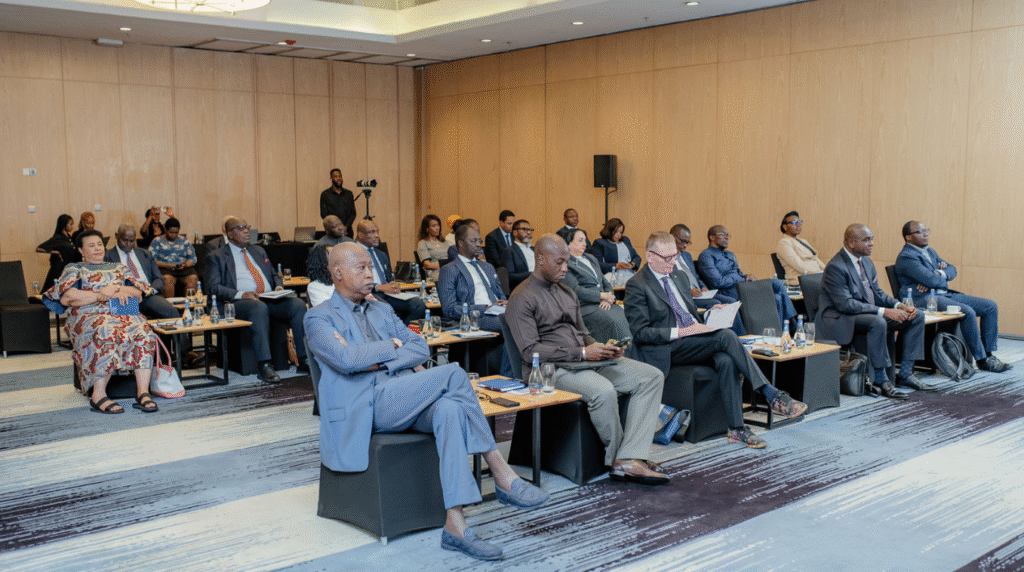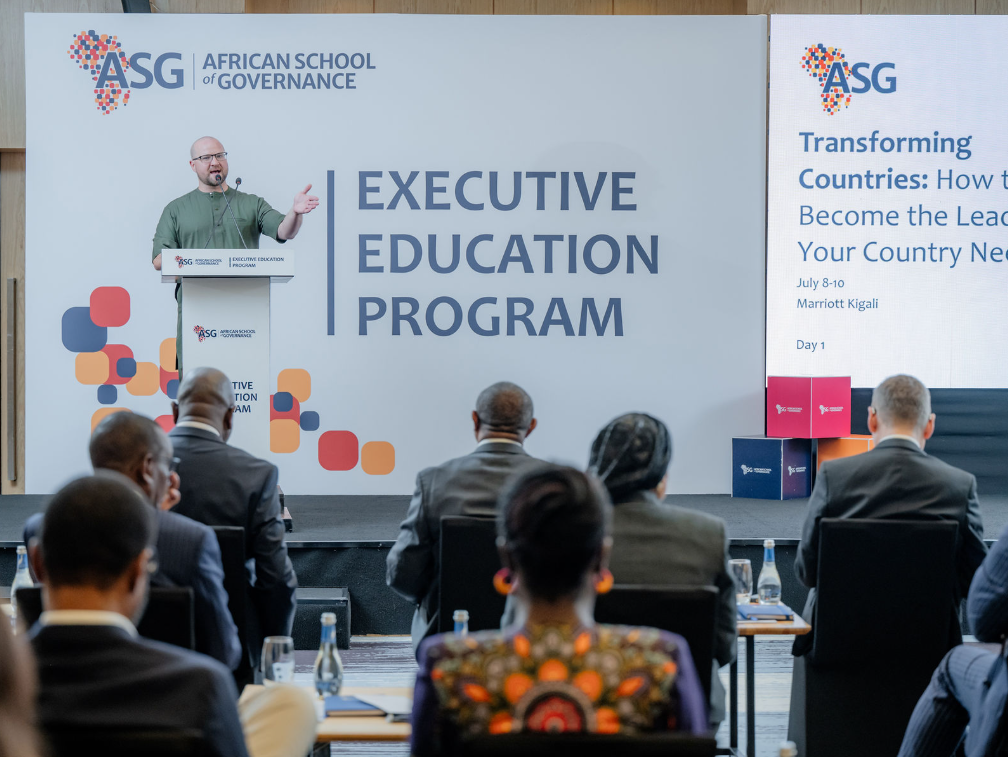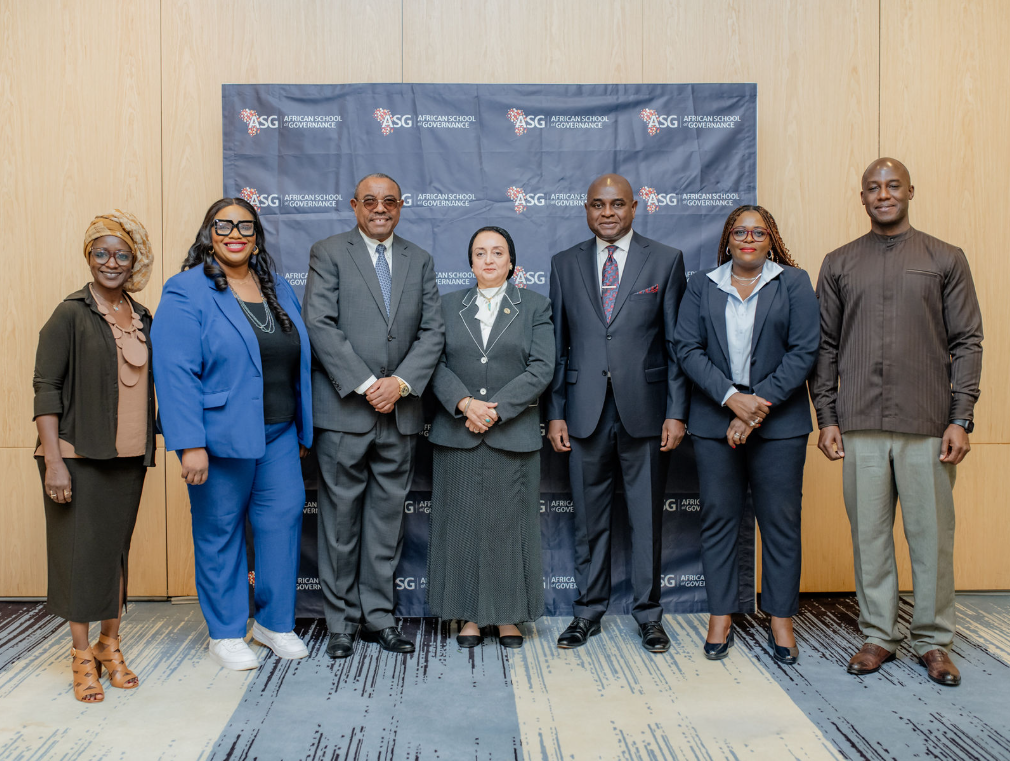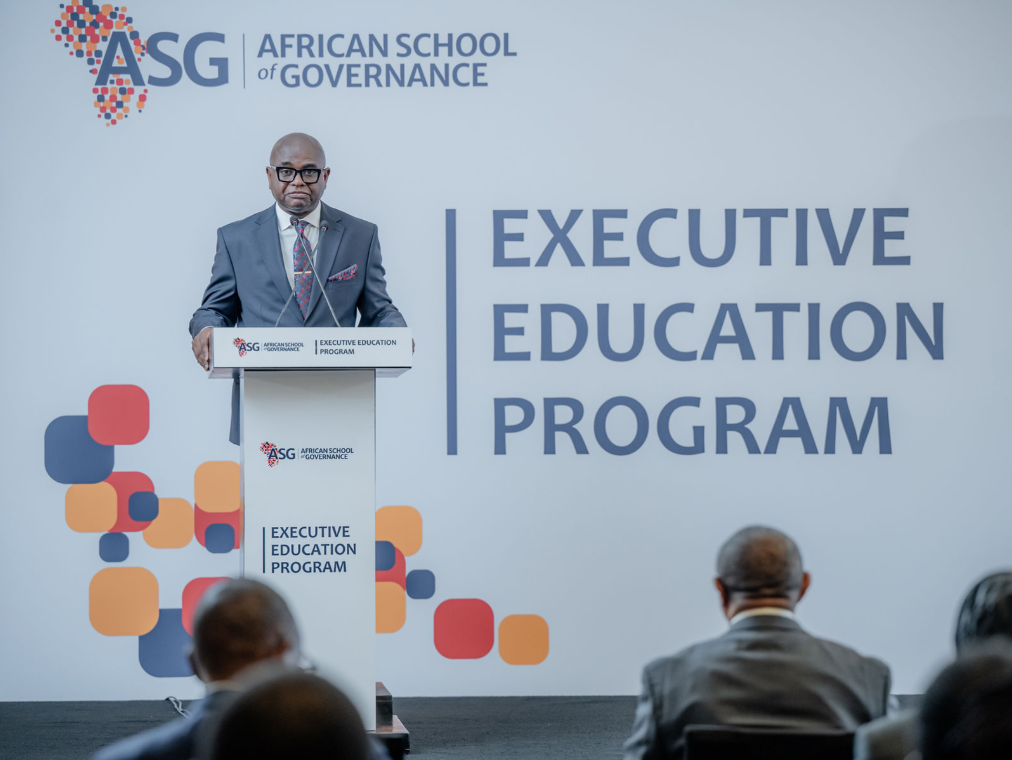From talk to action : African School of Governance urges to embrace homegrown solutions
The African School of Governance (ASG) successfully concluded its inaugural Executive Education Program in Kigali, Rwanda, bringing together 20 top African leaders including ministers, parliamentarians, senior officials, academics and governance experts for a three-day intensive workshop from July 8-10, 2025.
By Teddy KABERUKA, in Kigali
Under the theme “Transforming Countries: Becoming a leader in your country’s need,” the program sought to cultivate a new generation of transformational African leaders grounded in homegrown philosophies, governance models, and solutions tailored to the continent’s unique challenges.
The high-level marked a pivotal moment in redefining leadership across the continent, with participants committing to drive tangible change in their respective countries.
The Kigali workshop aimed to reshape Africa’s leadership narrative by grounding it in homegrown philosophies, indigenous values and a continent-wide call for visionary governance. As countries across Africa continue to grapple with challenges such as governance deficits, policy inconsistency, and youth unemployment, ASG positioned this executive education program as a timely intervention to cultivate a new generation of leaders equipped to offer local solutions to local problems.

A new vision for African leadership
Africa’s development trajectory has long been shaped by external ideologies, often failing to address the continent’s specific needs. The ASG workshop challenged this paradigm, emphasizing that “no country develops by adopting another’s philosophy.”
Professor Kingsley Moghalu, President of ASG, set the tone in his closing remarks :
We haven’t just come here to talk, we have thought and we will do. Each participant made a personal commitment to take this message home and influence their government and society. This is about shaping a leadership mindset rooted in Africa’s realities.
The program’s discussions centered on Africa’s leadership deficit, which persists despite the continent’s vast natural resources and youthful population. Participants examined how poor governance fuels multidimensional poverty and explored strategies for homegrown policy solutions.

A strong consensus emerged: Africa must develop its own solutions grounded in indigenous ideologies that reflect the people’s culture, mindset and developmental aspirations. Participants emphasized that sustainable progress cannot be achieved through borrowed governance models, which have repeatedly fallen short. Instead, true transformation lies in embracing homegrown philosophies built on Africa’s unique identity and powered by its existing domestic resources and traditional knowledge. “Africa must embrace and elevate its own worldview to drive impactful and lasting change” said by Professor Kingsley Moghalu, President of ASG President of ASG and one of the facilitators of the program. By rooting policies in local realities and values, Africa can forge a development path that is authentic, inclusive and lasting designed by Africans, for Africans.
Throughout the program, participants engaged in highly participatory sessions focused on deconstructing inherited governance models and reimagining leadership through the lens of African traditions, resilience and self-determination. Case studies, peer dialogues, and expert-led modules were designed to challenge conventional thinking and spark innovation in public leadership.

Youth as today’s leaders, not tomorrow’s
A recurring theme was the critical role of Africa’s youth in shaping the continent’s future. With over 60% of Africa’s population under 25, leaders stressed that young people must be at the forefront of governance and policy-making. In his remarks, Alban Bagbin, Speaker of Parliament in Ghana, emphasized the role of Africa’s youth: « It’s not just Africa rising, the youth are rising. Age is one of the drivers of positive change. »
This message resonated with Justice Meaza Ashenafi Mengistu, former Chief Justice of Ethiopia, who stated, « Youth are not the leaders of tomorrow. They are the leaders of today and have a key role to play in Africa’s success. »
One of the strongest calls to action was the need to integrate youth in governance processes not only as beneficiaries but as active contributors. With a young population, the Africa continent’s future hinges on its ability to empower, equip and include its youth in decision-making.

What’s next for ASG?
ASG’s broader mission is to nurture leaders who can drive Africa’s sustainable development by providing innovative public policy education, cutting-edge research, and a platform for high-level policy dialogue. With this first executive education program, ASG is already shaping up to be a continental hub for leadership development and governance transformation.
Looking ahead, ASG has ambitious plans to scale its impact. The school will continue to convene continental leaders for high-level policy dialogues and governance training. Later this year, ASG will launch its first cohort of the Master in Public Administration (MPA) program, targeting young African professionals. The program, which begins in September 2025, will offer scholarships to eligible candidates committed to public service and innovation in governance.
With this bold beginning, the African School of Governance has set the tone for a new era in African leadership, one that is transformational, self-defined and unapologetically African.





